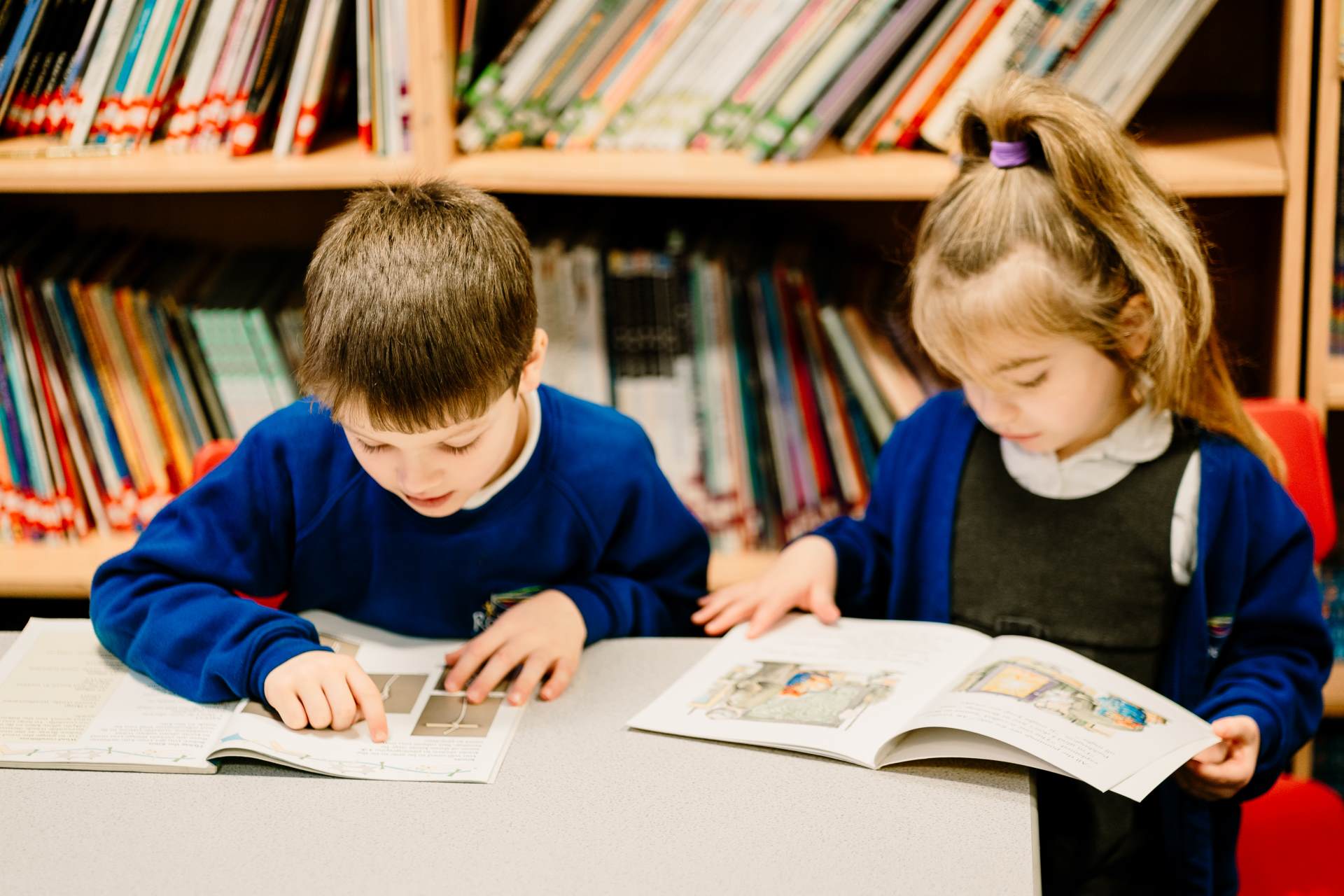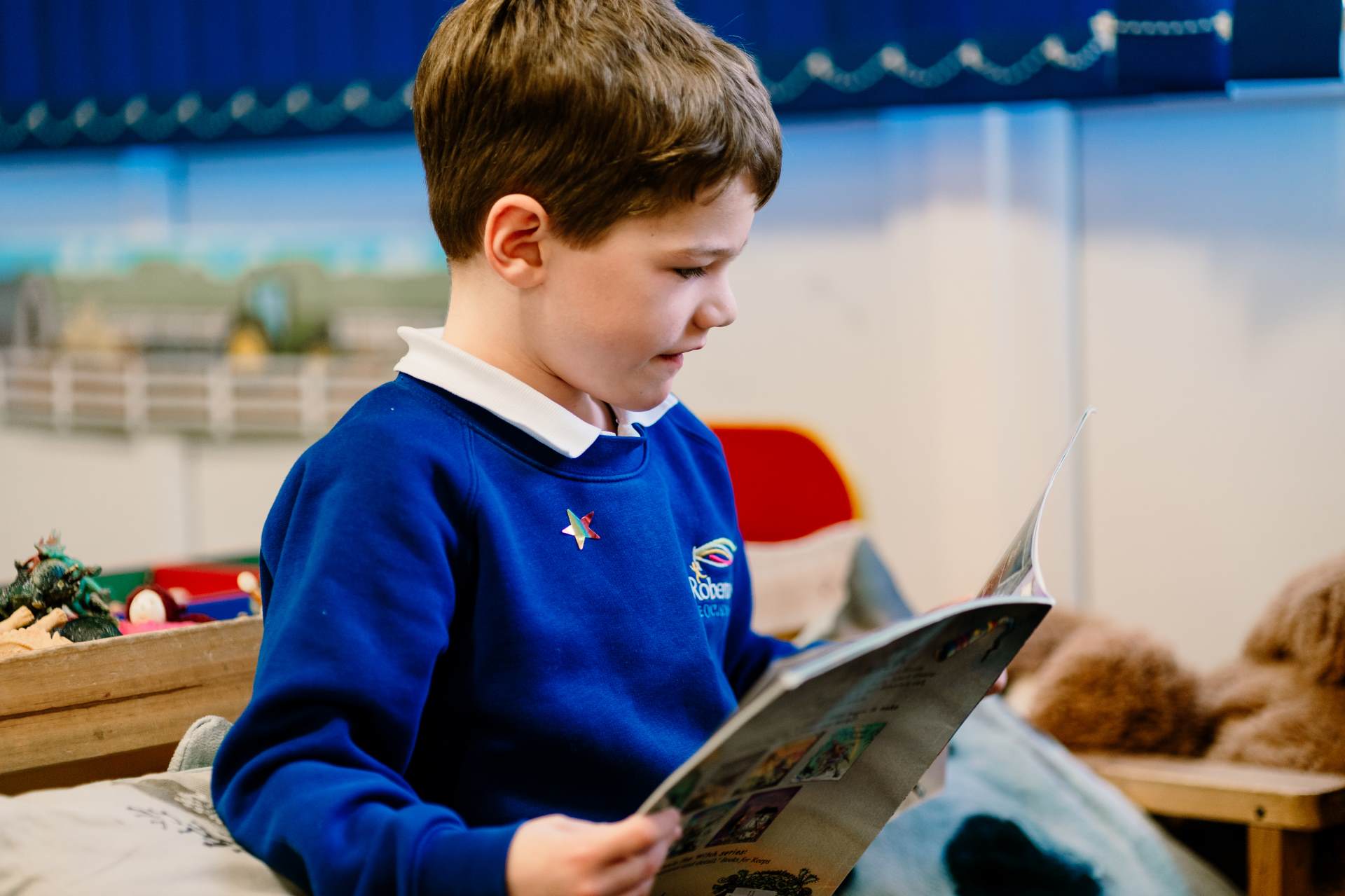English - Reading

Intent: Our Vision
Reading should be an enjoyable and imaginative time for children, which can open up a treasure trove of wonder and joy for curious young minds. A child's reading skills are important to their success in school as they will enable them to access the breadth of the curriculum and develop their communication and language skills. Through reading at Roberttown CE J&I School, children have the opportunity to develop culturally, socially and emotionally as well as reaping the benefits academically. A ‘Love of Language’ is developed and fostered for the enjoyment, challenge and understanding of text. This love of language is developed through poetry, a variety of fictional genres and non-fiction texts.

Implementation:
Our Approach
At Roberttown School, we have a structured approach to the teaching of reading. We use a wide range of reading materials and teaching methods to help children learn to read in a way which meets their needs and challenges them appropriately. Throughout school, we have a rich collection of published books in order to encourage children’s desire to become readers.
Each year group has a list of class novels shared through a daily story time. These are linked, where appropriate, to the areas of learning for that half-term. Not only does this way of learning help to make links to other areas of the curriculum but it also provides context for the children and highlights the importance of reading whilst also encouraging an enjoyment for it too. These books our ‘great reads’ for each year group, these are texts by a range of authors that we want the children to know well and in depth.
We acknowledge and value the important role played by the family in supporting children’s reading development by reading to them and listening to them read. Books are taken home on a daily basis along with a reading record so that children can be heard reading and a comment (even a brief one) can be made. Children should read and a comment should be written in their reading records at least 5 times a week.
Across Foundation Stage and Key Stage One, we teach phonics using Little Wandle Letters and Sounds Revised for a half an hour phonics session daily, supplemented with a same day intervention session if required. These sessions enable the children to segment and decode words. Guided Reading sessions take place 3 times per week with each child to practise key skills. Texts are engaging and well matched to provide them with the opportunity to practise their phonic sounds. Once the children have learnt how to read, they can then learn to comprehend and understand the text they are reading. Children are encouraged to use these strategies independently to understand, enjoy and learn from a range of texts. Through this they will become fluent, expressive readers with the stamina to enjoy challenging texts.
In Key Stage Two, reading is taught through a whole class comprehension approach. The types of questions children will explore are relevant to the key comprehension skills, such as: discussing and exploring vocabulary; making predictions; discussing the author’s choice of language and the effect it has on a reader. Guided reading and phonics intervention sessions are also used for some children in Key Stage Two to further support decoding, fluency and comprehension.
All teachers use quality texts in all aspects of their teaching across the curriculum and provide opportunities that extend and enrich the children’s learning. It is these tools and opportunities that we believe give our children the necessary skills to become thoughtful and confident readers for life.
Further Information
Reading rationale Reading progression of skills EYFS and KS1
Reading progression of skills KS2
Year 1 reading long term plan Year 2 reading long term plan


